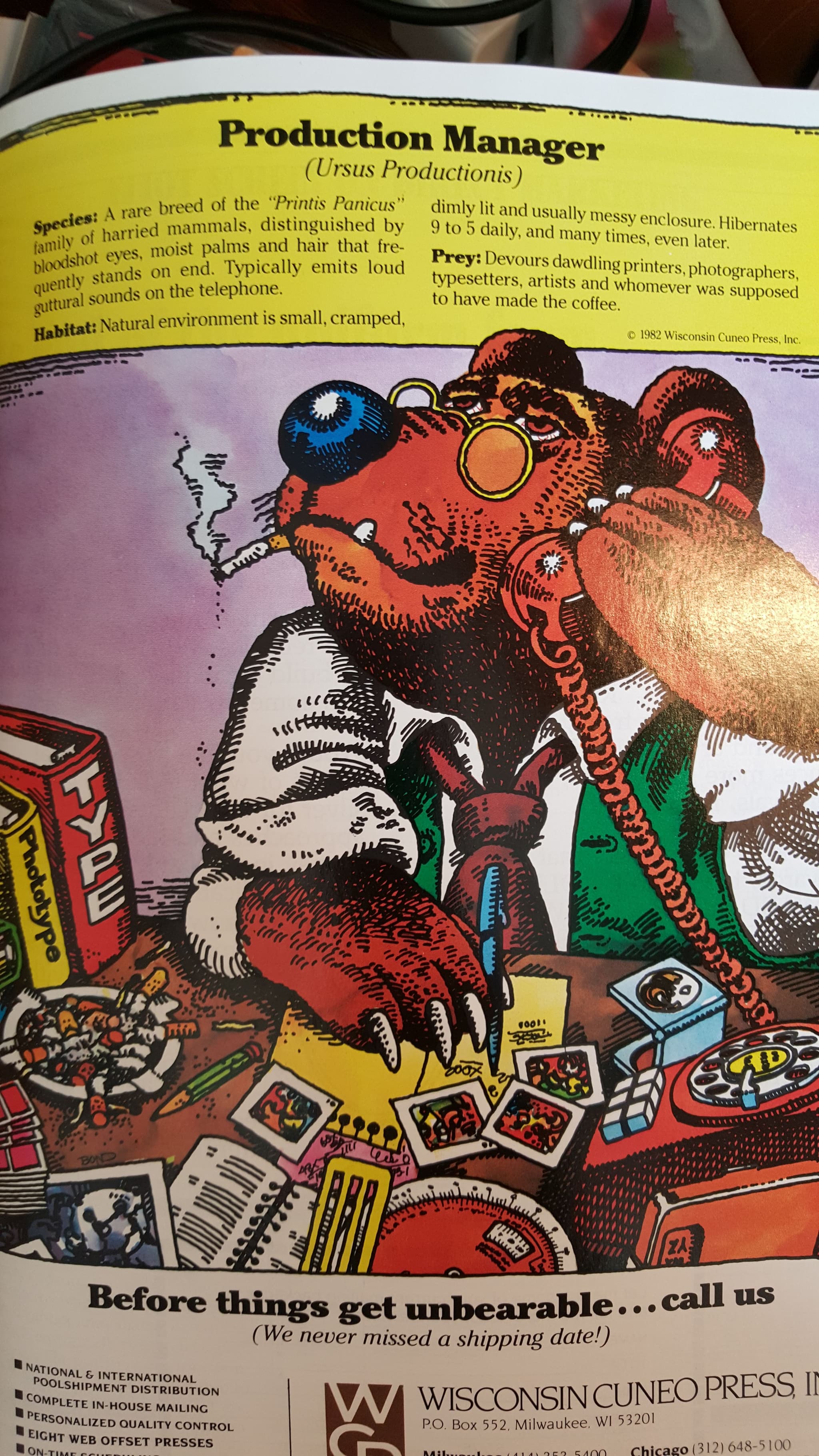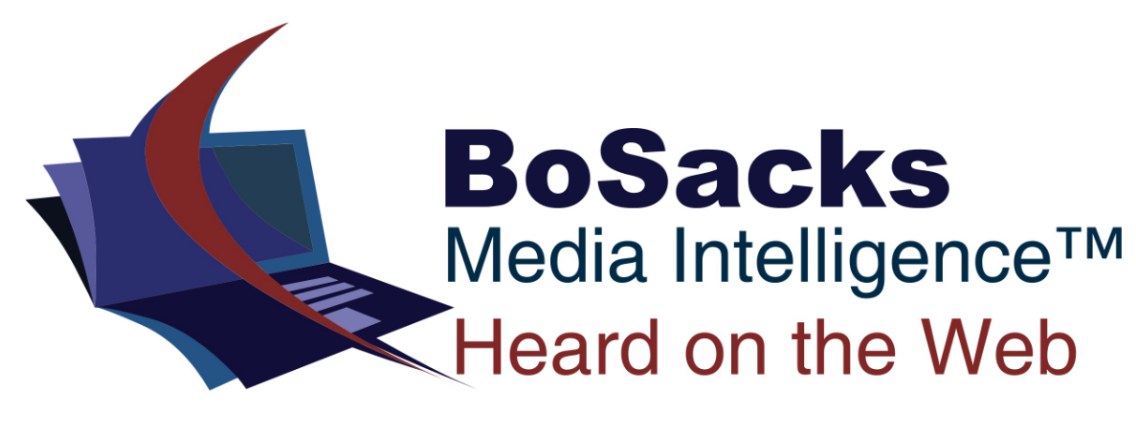BoSacks Speaks Out: The Rise and Fall of FOLIO: A Mirror for the Magazine Industry
By Bob Sacks
Wed, Jul 23, 2025

For decades, FOLIO: wasn't just a trade publication; it was the trade publication. It was the bible of magazine management, chronicling our industry's triumphs and missteps, its mergers and bankruptcies, its cover redesigns and circulation strategies. FOLIO: kept score, kept watch, and kept us all connected. I truly miss it.
But FOLIO: is no more.
Its disappearance marks more than just the loss of a magazine. It signals the erosion of a once-vibrant publishing ecosystem and offers a sobering case study in how industries can fail to adapt, even when they clearly see the collapse looming.
The Golden Era of Magazine Power
Launched in 1972 by Joe Hanson, FOLIO: emerged at a time when magazines were not merely thriving; they were cultural powerhouses. Think of the era when Time, Life, and Look commanded massive audiences and influenced public opinion. FOLIO: meticulously documented the intricate machinery behind that glamour: editorial strategy, production workflows, postal rates, paper supply, and nuanced ad sales techniques. If you were in the magazine business, FOLIO: was your essential instruction manual, your go-to source for industry gossip, and your quarterly report, all rolled into one indispensable package.
Its annual Folio: 400 was the definitive industry benchmark, providing a clear snapshot of the top players and their performance. Its conferences, like the Folio Show, which I used to speak at, were crucial meeting grounds for dealmakers, innovators, and anyone looking to forge connections. The Eddie & Ozzie Awards celebrated the very best in editorial and design, showcasing the artistry that underpinned the business. It was a thriving ecosystem, and FOLIO: was at its very heart.
However, as the industry began to shift under the immense weight of digital disruption, FOLIO: struggled to shift with it.
Death by a Thousand Cuts
The print edition of FOLIO: ceased publication in 2018. Its digital presence slowly went quiet by 2020. There was no grand farewell issue, no poignant final editorial. Just a slow, silent fade into oblivion.
Why did this happen? The easy answers are the usual suspects: digital disruption, declining readership, and a perceived loss of relevance. But the real story is far deeper and more structural.
As magazines themselves began to shrink and consolidate, so too did their entire supporting ecosystem.
Printers and vendors, once a diverse and fiercely competitive group, began merging at an alarming rate. The economic pressure was relentless, squeezing margins until they all but disappeared. Small and mid-sized firms either shuttered their doors or were absorbed by the few remaining giants. What was once a vibrant and varied vendor base became a narrow bottleneck. For example, where dozens of specialized printing houses once competed for magazine contracts, now with some exceptions, only a handful of massive conglomerates remained.
And when the vendor field dramatically shrank, so did the advertising revenue that FOLIO: so heavily relied upon. Printers, for instance, were once among FOLIO:'s most loyal advertisers, vying for the attention of publishers with full-page ads, detailed white papers, and event sponsorships. As consolidation took hold, so did centralized marketing departments. Fewer vendors meant fewer, and often significantly smaller, marketing budgets. The lucrative ad pages in FOLIO: dried up, and its economic foundation crumbled.
It’s one thing for your reader base to shrink, a challenge many publications faced. It's an entirely different and far more devastating blow when your core advertisers vanish almost completely.
A Familiar Pattern of Decline
Like many of the publications it covered, FOLIO: cycled through multiple owners: Cowles, Primedia, Red 7, and finally, Access Intelligence. Each new owner brought changes and fresh strategies, but none could halt the steady decline. They simply couldn't reverse the fundamental erosion of FOLIO:'s business model.
Digital extensions were launched, events were emphasized, and newsletters proliferated. Yet, the core editorial mission, the very heart and soul of FOLIO: was gradually deemphasized in favor of more overtly commercial projects, such as sponsored content or niche events. Eventually, even those endeavors faded.
By the time COVID-19 hit, there wasn’t enough left to salvage. The collapse wasn’t sudden or dramatic; it was incremental, a slow attrition of attention, revenue, and ultimately, relevance.
The Broader Lesson: A Collapsed Ecosystem
The death of FOLIO: isn’t just about a single magazine; it’s about a collapsed ecosystem. You simply cannot have a truly thriving trade publication without a thriving trade to cover and serve. And when that trade becomes smaller, more concentrated, and less relational, what happens to the connective tissue that binds it?
What happens when a once-diverse field of vendors consolidates into a few corporate behemoths with little or no need to advertise in traditional trade publications? What happens when industry trade events become purely transactional rather than communal gatherings where ideas and relationships are forged? What happens when the publishing community forgets to actively support the very institutions that gave it a collective voice and identity?
We didn't just lose FOLIO:. We lost a mirror that reflected our industry, a comprehensive record of its evolution, a vital stage for debate and celebration, and a crucial pulse check on an industry that once profoundly shaped American culture and commerce.
What remains is a powerful cautionary tale.
If you think legacy alone will save your business, think again. If you believe consolidation is a neutral force, look more closely. The shrinking of the vendor field didn't just kill competition; it quietly starved the very media that supported and informed the marketplace. And when that trade media disappears, so too does the institutional memory, shared knowledge, and ongoing dialogue that makes industries coherent and resilient.
FOLIO: may still exist in fragments, its awards, its brand, its "ghost pages" on the internet, but the vibrant publication that once unified a vast and creative industry is truly gone.
Let that be a profound lesson. Not just a moment for mourning, but a strategic imperative. Reinvention isn’t optional; it is quite literally survival. And survival doesn't mean playing defense or clinging to the past. It means actively building the future before your past completely fades away.
The Generational Gap: Seeking New Mentorship
Finally, with the demise of both Publishing Executive Magazine and FOLIO:, we're not just mourning lost publications; we’re reckoning with a significant generational gap in industry fluency.
My generation grew up reading those magazines like scripture. They taught us the intricate language of publishing: pagination and postal rates, newsstand dynamics, the nuances of editorial integrity, and effective monetization strategies. You didn’t just read FOLIO:; you studied it, debated its pages with colleagues, and absorbed its wisdom. It was mentorship in print, delivered diligently every month.
So, where does the next wave of publishing professionals go for this critical industry education and shared context? TikTok? LinkedIn chatter? Fragmented threads and algorithm-curated noise?
I cover as much ground as I can in this newsletter, and I’ll continue doing it daily, obsessively, and transparently. But even I have to admit: "Heard on the Web" isn't a one-to-one replacement for a bullpen of razor-sharp editors, beat-savvy reporters, and informed industry provocateurs. It's a lifeline, but it's not a newsroom.
We need new platforms, not vanity blogs or branded content farms, but spaces where trade journalism is treated as a public good. Where career insight is meticulously curated, not just haphazardly crowdsourced. Where the next generation doesn't have to sift through endless clickbait to find genuine wisdom and guidance.
Because without that crucial layer, what happens? We lose continuity. We lose nuance. We lose the essential mentorship loop that fosters talent and innovation.
We've allowed the collapse of our vital trade magazines to become mere background noise in the broader media funeral procession. But this loss is deeply personal, structurally damaging, and strategically perilous.
One last thought, one that haunts me more deeply than logos or layoffs.
In my day, mentoring wasn’t just a side benefit of working in publishing. It was baked into the job description. Mentoring was good business. It was how knowledge scaled. How careers were shaped. How identity passed from one generation of stewards to the next.
I was mentored. I was shown the ropes, corrected when I mis-stepped, and encouraged when I didn’t know what I was capable of. The result? The man standing before you with this newsletter in hand.
But I have to wonder, does mentoring still exist?
In an era of downsized teams, accelerated deadlines, and AI-assisted everything, does management have the time, or the mandate, for mentorship? Or has the efficiency gospel squeezed it out of the org chart?
I don’t know.
What I do know is this: Heard on the Web is my way of giving back. My way of honoring the people who poured their time, talent, and patience into me. It’s a debt I pay forward daily, one headline at a time.
But a newsletter, no matter how persistent, isn’t a replacement for a bullpen of seasoned editors and battle-tested pros trading lessons between deadlines. It’s an homage. It’s a lifeline. But mentorship is a living craft, and it needs space to breathe.
If we want this industry to survive beyond metrics and margins, we need to teach again. We need to reach again. We need to make room, strategically, emotionally, financially, for the next generation to not just enter the game but understand it.
Because without mentoring, publishing risks becoming a profession without memory.
